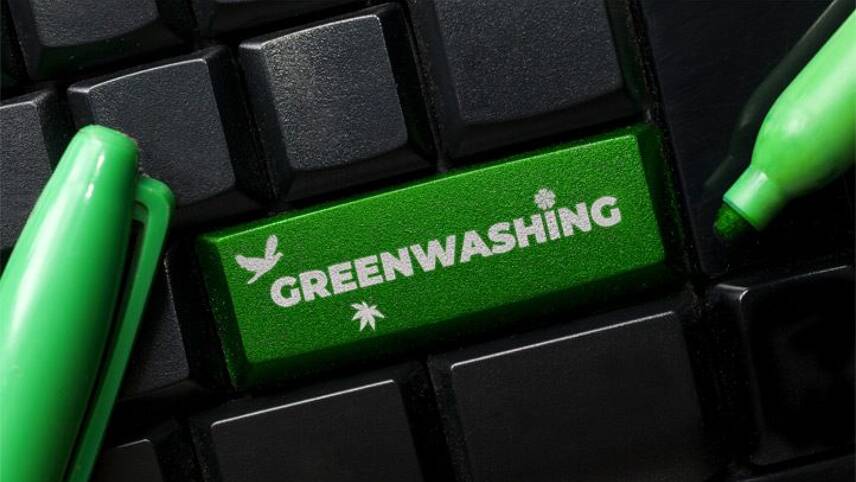Register for free and continue reading
Join our growing army of changemakers and get unlimited access to our premium content

The phrase ‘greenwashing’ was first coined in the 1980s. The term defines communications made by organisations that claim that they are environmentally conscious for marketing purposes but make no notable sustainability efforts.
Today’s consumers – Generation Z especially – are more connected, informed, curious, and vocal on topics relating to the environment than ever before. As a result, they often act as change agents for the organisations they interact with. Meanwhile, solutions enabling us to be more sustainable are increasingly available and affordable, from renewable energy to plant-based diets, sustainably produced fashion, battery storage, electric vehicles and much more.
Recognising this consumer appetite for sustainable solutions, research by The Future of Commerce suggests some organisations are taking advantage of focusing on shortcuts they feel will attract consumers. Such ‘greenwashing’ sees some brands use vague language, like eco-friendly, green, organic, or even natural, without them demonstrating how the product or service avoids an adverse environmental or societal impact.
It is fair and proper to be inquisitive as a consumer about the claims organisations are making. But we can avoid using “greenwashing” as an easy catch-all term to suggest misleading communications.
Simply labelling these claims as greenwashing risks being dismissive or giving people a pass to not talk about their sustainability challenges and opportunities (known as ‘greenhushing’ – where organisations choose to keep their sustainability targets and performance private for fear of falling short under stakeholder scrutiny.). We will only accelerate the pace of positive change if we create an environment that supports meaningful conversation and includes everyone willing to engage in this.
Calling something greenwashing, without providing clear alternative pathways for true impact, means organisations may think twice before talking about their ambitions and the actions they are taking, an essential ingredient for change is being inclusive, encouraging everyone to engage and deliver real progress.
Compassion, and taking the time to understand diverse points of view, can strengthen our approach. Accelerating action can be achieved constructively and together. No one organisation, no one person and no single perspective will help us achieve what we need to achieve without wider collaboration.
Rather than only criticise organisations for greenwashing, we can focus on creating an environment that looks for ways we can all do better and drives positive change. Because in the end, even the most minor steps in the right direction can add up to a significant impact. Yet we’ll never get there if we’re all hamstrung by fear.
That’s why it’s so essential organisations strike the right balance in how they talk about sustainability. As they shift away from greenwashing, there are questions that organisations can put front and centre of their planning activity:
- What does sustainability mean for my organisation?
- How do I help my organisation to be more sustainable?
- How do I ensure that I meet the needs and expectations of my customers, stakeholders, and regulators in implementing impactful sustainability programmes?
- What future regulations, imperatives and expectations should I be planning for?
- Where should I be investing, in what order and over what timeframe to deliver the most significant impact and best return from our investments?
There are three key areas to consider:
- The role of Marketing. Marketing and communication teams play an essential role in the messages an organisation presents to the outside world. The words used are powerful and crucial. Savvy consumers will know they shouldn’t take a slogan at face value and may even dig into the company’s practices and see if they have an ethical supply chain or if there’s any other controversy surrounding their actions. To avoid greenwashing, marketing and sustainability teams can work side-by-side to ensure claims are backed up with legitimate evidence which is widely available.
- Certifications. Environmental claims, which are not backed up with independent third-party certification, may raise red flags for consumers looking for examples of greenwashing. At the same time, claims that are jargon-heavy or made without evidence (for example, percentages of recycled content) may not be meaningful enough to build trust.
- Hiding the trade-off. As companies develop their strategies, they must start somewhere. Some brands are open and honest that they still need to solve all their issues but have a plan in place – while others may be setting a very narrow set of criteria. For example, if the paper used by an organisation originates from a sustainable forest this still only tells part of the story; you also need to consider the paper-making process, the carbon emissions in production and transportation, or the chemicals used in the bleaching process. To be clear in communications, it’s essential to show where progress has been made – and what’s left to do.
The future society is looking to achieve one where customers trust organisations to do the right thing, where organisations balance profit with the needs of people and the planet, and where employees trust their employers to create an environment that is safe and respectful, open, and transparent. Where governments, regulators and non-governmental organisations are trusted by citizens to protect their interests. Where people expect the best from each other every day, we are all part of the solution.
Ultimately, consumers are alive to how open and transparent organisations are being. As Generation Z and those that follow grow up, they will be ever wiser about greenwashing.



Please login or Register to leave a comment.